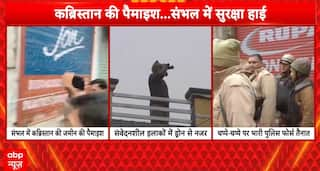Delhi's Air Quality Deteriorates Further As AQI Reaches 359, Experts Advise To Stay Indoors
Experts have also emphasised taking precautions especially while exercising advising to opt for indoor activities rather than go outdoors.

Air pollution is still on the rise in Delhi with AQI reported at 359 on Tuesday, according to the Central Pollution Control Board. Winter in the capital city is often accompanied by an increase in smog and pollution. On Monday, Delhi’s AQI remained at 352.
A report by Livemint highlighted the Central Pollution Control Board (CPCB) data that says that the 24-hour average Air Quality Index (AQI) recorded until 4 pm daily was reported at 352.
Experts have also emphasised taking precautions especially while exercising advising to opt for indoor activities rather than go outdoors. The rising pollution also adversely impacts people with respiratory health issues such as asthma. The India Meteorological Department (IMD) humidity levels fluctuated between 96 per cent and 72 per cent during the day on Monday in Delhi.
The report says that apart from Delhi AQI, 5 other Indian cities are also in the 'very poor’ category including Chandigarh, Churu, Jhunjhunu, and Mandideep. The IMD has also forecast moderate fog on Tuesday for Delhi with the maximum and minimum temperatures expected to reach around 33 and 17 degrees Celsius, respectively.
The CPCB has received over 800 pollution-related complaints from the Delhi-NCR region in the last 10 months, PTI reported citing an RTI response. The RTI was filed by environmentalist Amit Gupta, the CPCB said it has received 665 complaints from Delhi, 143 from Noida and 28 from Gurugram and Faridabad as of October 29.
Meanwhile, on Monday, the Supreme Court said that the implementation of the firecracker ban in Delhi during Diwali was not taken seriously by Delhi Police. The top court while directing the Commissioner of Police in Delhi to take action to ensure the implementation of the firecracker ban observed that the right to live in a pollution-free atmosphere is a Fundamental Right under Article 21.
While seeking a response from the Delhi government on its stance over proposed perpetual ban on firecrackers in the national capital, the court further said that no religion promotes any activity which promotes pollution or compromises with health of people.
Related Video
Breaking: Dehradun Student Murder Sparks Nationwide Outrage, Police Deny Racial Angle Amid FIR Contradictions





































